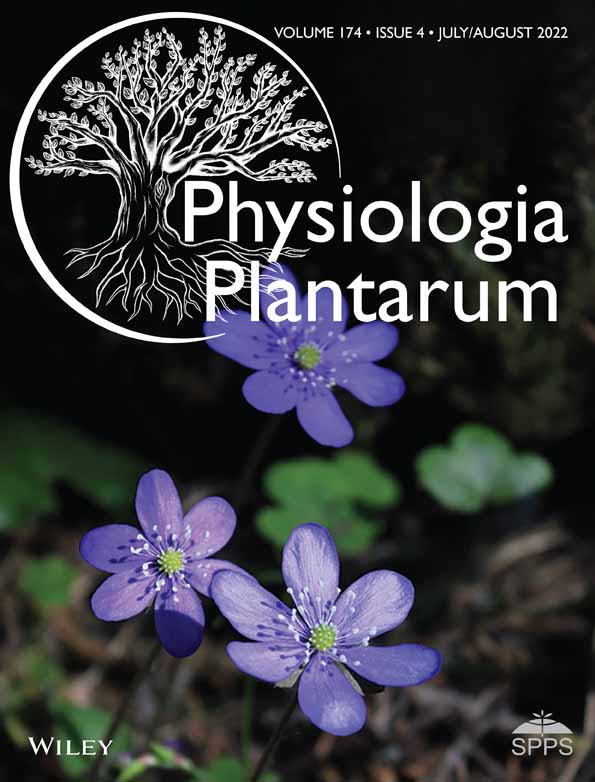Ver ítem
- xmlui.general.dspace_homeCentros Regionales y EEAsCentro Regional Mendoza - San JuanEEA La ConsultaArtículos científicosxmlui.ArtifactBrowser.ItemViewer.trail
- Inicio
- Centros Regionales y EEAs
- Centro Regional Mendoza - San Juan
- EEA La Consulta
- Artículos científicos
- Ver ítem
Halotolerant native bacteria Enterobacter 64S1 and Pseudomonas 42P4 alleviate saline stress in tomato plants
Resumen
Salinity is one of the principal abiotic stresses that limit the growth and productivity of crops. The use of halotolerant plant growth-promoting rhizobacteria (PGPR) that increase the growth of salt-stressed crops is an environmentally friendly alternative to promote plant yield under salinity. The aim of this study was to test native PGPR, isolated according to their tolerance to NaCl, and to evaluate their influence on morphological, physiological, and
[ver mas...]
Salinity is one of the principal abiotic stresses that limit the growth and productivity of crops. The use of halotolerant plant growth-promoting rhizobacteria (PGPR) that increase the growth of salt-stressed crops is an environmentally friendly alternative to promote plant yield under salinity. The aim of this study was to test native PGPR, isolated according to their tolerance to NaCl, and to evaluate their influence on morphological, physiological, and biochemical traits promoted by salt stress in tomato plants. Enterobacter 64S1 and Pseudomonas 42P4 were selected as the most efficient strains in terms of salt tolerance. Both strains were classified as moderately resistant to salinity (NaCl) and maintained their plant growth-promoting activities, such as nitrogen fixation and phosphate solubilization, even in the presence of high levels of salt. The results of a greenhouse experiment demonstrated that PGPR inoculation increased root and shoot dry weight, stem diameter, plant height, and leaf area compared to control non-inoculated plants under non-saline stress conditions, reversing the effects of salinity. Inoculated plants showed increased tolerance to salt conditions by reducing electrolyte leakage (improved membrane stability) and lipid peroxidation and increasing chlorophyll quantum efficiency (Fv/Fm) and the performance index. Also, inoculation increased the accumulation of proline and antioxidant non-enzymatic compounds, such as carotenes and total phenolic compounds. The catalase and peroxidase activities increased with salinity, but the effect was reversed by Enterobacter 64S1. In conclusion, Enterobacter 64S1 and Pseudomonas 42P4 isolated from salt-affected regions have the potential to alleviate the deleterious effects of salt stress in tomato crops.
[Cerrar]

Autor
Pérez Rodriguez, María Micaela;
Pontin, Mariela Ana;
Piccoli, Patricia Noemí;
Lobato Ureche, Miguel Andrés;
Gordillo, María Gabriela;
Funes Pinter, Mariano Ivan;
Cohen, Ana Carmen;
Fuente
Physiologia Plantarum : e13742 (First published: 30 June 2022)
Fecha
2022-06
Editorial
Wiley
ISSN
0031-9317
1399-3054
1399-3054
Formato
pdf
Tipo de documento
artículo
Palabras Claves
Derechos de acceso
Abierto
 Excepto donde se diga explicitamente, este item se publica bajo la siguiente descripción: Creative Commons Attribution-NonCommercial-ShareAlike 2.5 Unported (CC BY-NC-SA 2.5)
Excepto donde se diga explicitamente, este item se publica bajo la siguiente descripción: Creative Commons Attribution-NonCommercial-ShareAlike 2.5 Unported (CC BY-NC-SA 2.5)


